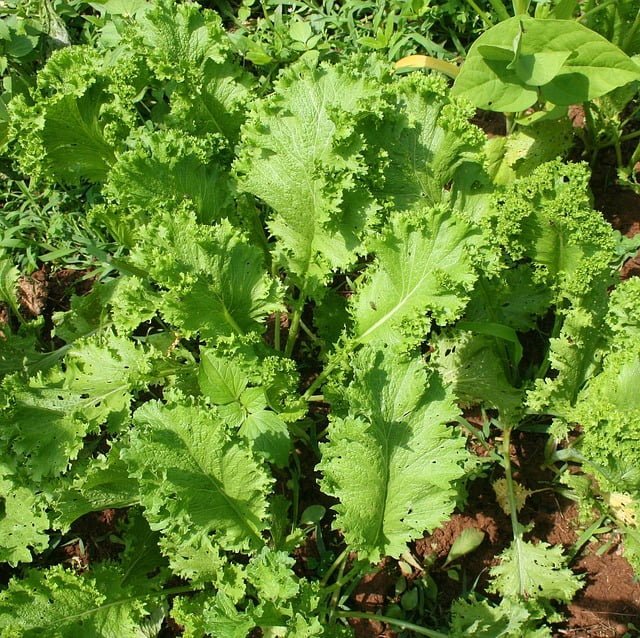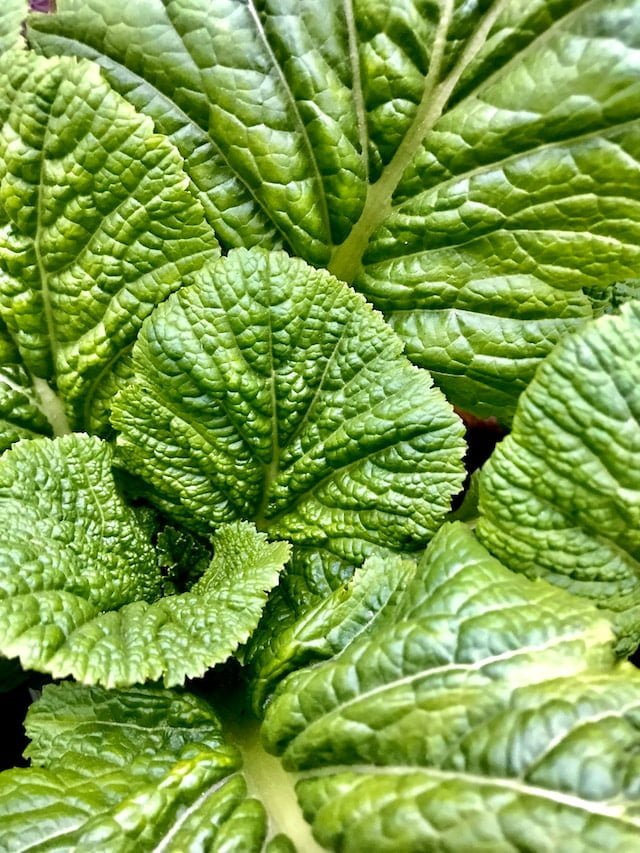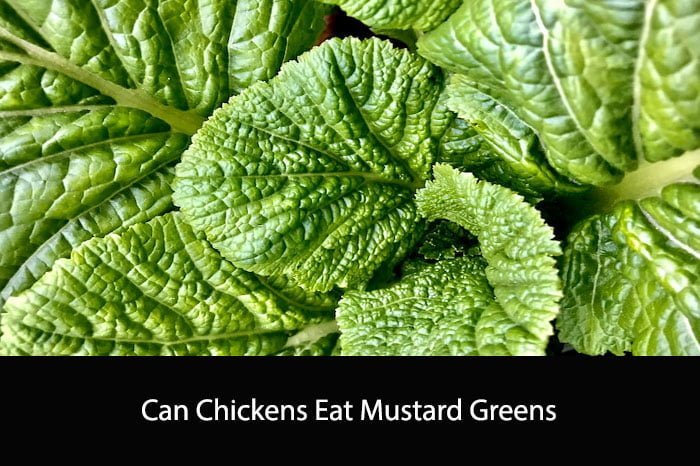Chickens are known for their ability to eat a wide variety of foods, and one question that often arises among poultry keepers is, “Can chickens eat mustard greens?” In this comprehensive guide, we will explore the benefits and potential risks of feeding mustard greens to your chickens, as well as other leafy greens that can be included in their diet. So, let’s dive in and learn all about mustard greens and their impact on your flock’s health.
Understanding Mustard Greens: A Nutritious Leafy Vegetable
Mustard greens are a leafy green vegetable that is commonly used in various cuisines around the world. They are known for their peppery taste and are often added to salads, stir-fries, and other dishes. Mustard greens are packed with vitamins and minerals, making them a nutritious food for both humans and animals, including chickens.

Nutritional Benefits of Mustard Greens
Mustard greens are an excellent source of numerous vitamins and minerals, such as:
- Vitamin A, which promotes good vision and healthy skin
- Vitamin C, which boosts the immune system and helps fight infections
- Vitamin K, which aids in blood clotting and bone health
- Calcium, which is essential for strong bones and eggshell formation
- Iron, which supports red blood cell production
- Fiber, which aids digestion and promotes good gut health
With such an impressive nutritional profile, it’s no wonder that many poultry keepers are keen to incorporate mustard greens into their chickens’ diets. But, can chickens eat mustard greens safely?
Can Chickens Eat Mustard Greens: The Verdict
The answer to the question, “Can chickens eat mustard greens?” is a resounding yes! Chickens can indeed consume mustard greens as a part of their diet, and these leafy greens can provide numerous health benefits to your flock. However, there are some essential factors to consider when feeding mustard greens to your chickens, such as moderation, freshness, and potential pesticide exposure.
Moderation is Key
While mustard greens are undoubtedly nutritious, they should not make up the majority of your chickens’ diet. As a rule of thumb, leafy greens, including mustard greens, should not comprise more than 10% of your chickens’ total food intake. This is because mustard greens contain oxalic acid, which can bind with essential minerals like calcium and iron, preventing their absorption. Thus, overfeeding mustard greens can lead to mineral deficiencies in your flock.
Prioritize Freshness
When feeding mustard greens to your chickens, it’s crucial to ensure that the greens are fresh and free from any signs of rot or decay. Fresh mustard greens should have crisp, vibrant leaves without any wilting or discoloration. Feeding your chickens spoiled or rotten greens can result in illness or digestive upset.
Beware of Pesticide Exposure
If possible, opt for organically grown mustard greens to minimize the risk of pesticide exposure. If organic greens are not available, make sure to wash the mustard greens thoroughly before feeding them to your chickens. Pesticides and chemicals can be harmful to your flock, so it’s essential to take this step to protect their health.
The Advantages of Feeding Mustard Greens to Chickens
Now that we’ve established that chickens can eat mustard greens let’s delve into the numerous benefits that these leafy greens can provide for your flock.
Boosted Immunity
Mustard greens are rich in Vitamin C, which is known for its immune-boosting properties. Feeding your chickens mustard greens can help strengthen their immune systems, making them more resilient to infections and diseases.
Improved Digestion
The high fiber content in mustard greens can aid digestion in chickens, ensuring that their digestive systems function optimally. Good digestion is essential for overall health and allows chickens to absorb all the necessary nutrients from their food.
Enhanced Bone Health
The calcium and Vitamin K content in mustard greens can contribute to better bone health in chickens. Calcium is vital for strong bones and proper eggshell formation, while Vitamin K is essential for blood clotting and calcium absorption.
Better Egg Production and Quality
Feeding mustard greens to your chickens can also improve their egg production and quality. The zinc present in mustard greens can help chickens produce more eggs and promote healthy skin and feathers.
Natural Pest Control
The sulfur content in mustard greens can act as a natural pest repellent, potentially deterring pests like fleas from invading your chicken coop. However, it’s essential to note that mustard greens may not be effective against internal parasites or mites.
Preparing Mustard Greens for Your Chickens
Feeding mustard greens to your chickens is relatively simple, but proper preparation is essential to ensure their safety and maximize the nutritional benefits.
Washing and Chopping
Before feeding mustard greens to your flock, make sure to wash them thoroughly to remove any dirt, debris, or pesticide residues. After washing, chop the greens into small, bite-sized pieces to make it easier for your chickens to eat and digest.
Raw or Cooked
You can choose to feed mustard greens to your chickens either raw or cooked. If you prefer to cook them, steaming is the best method as it retains more nutrients than boiling. However, feeding raw mustard greens is also acceptable, provided they are clean and chopped into small pieces.
Monitor Consumption and Remove Leftovers
After feeding mustard greens to your chickens, keep an eye on their consumption and remove any uneaten greens before they spoil. This helps maintain a clean and hygienic environment for your flock and reduces the risk of disease.
Can Chicks Eat Mustard Greens?
While adult chickens can safely consume mustard greens, it’s essential to exercise caution when feeding these leafy greens to chicks. Chicks have a less developed digestive system, making it more challenging for them to process large quantities of mustard greens. It’s best to limit the consumption of mustard greens for chicks and focus on providing them with a balanced, age-appropriate diet.

Alternative Leafy Greens for Chickens
Aside from mustard greens, there are several other leafy greens that chickens can safely consume. Offering a variety of leafy greens can provide your flock with essential nutrients and keep them interested in their food. Here are some other leafy greens that you can consider feeding your chickens:
Lettuce
Lettuce is a popular leafy green that chickens can enjoy, particularly if you can source organic varieties. It offers essential nutrients like Vitamin K and folate, as well as fiber for good digestion. However, avoid iceberg lettuce as it contains mostly water and lacks significant nutritional benefits.
Spinach
Spinach is an excellent source of vitamins and minerals, making it a nutritious option for your chickens. Just be sure to chop it up into small pieces before feeding it to your flock to aid digestion.
Kale
Kale is another nutrient-rich leafy green that can be fed to your chickens. It contains essential vitamins like Vitamin A and Vitamin K, as well as minerals like zinc and magnesium. As with spinach, chop it up into small pieces before offering it to your flock.
Arugula
Arugula is a peppery leafy green that your chickens may enjoy. It is rich in vitamins and minerals like Vitamin A, Vitamin K, and calcium. Ensure that you chop it up into small pieces before feeding it to your chickens to facilitate proper digestion.
Collard Greens
Collard greens are a great source of fiber, protein, and other essential nutrients like calcium, vitamin A, and vitamin C. Chopping them up into smaller pieces will allow your chickens to get the full benefit of these leafy greens.
Final Thoughts on Can Chickens Eat Mustard Greens
In conclusion, chickens can indeed eat mustard greens as long as they are fed in moderation, prepared correctly, and checked for freshness and potential pesticide exposure. Mustard greens can provide numerous health benefits for your flock, including improved immunity, digestion, bone health, and egg production.
By incorporating mustard greens and other leafy greens into your chickens’ diet, you can help ensure their overall well-being and happiness. Just remember to monitor their consumption, remove any uneaten greens, and offer a balanced diet to keep your flock healthy and thriving.





